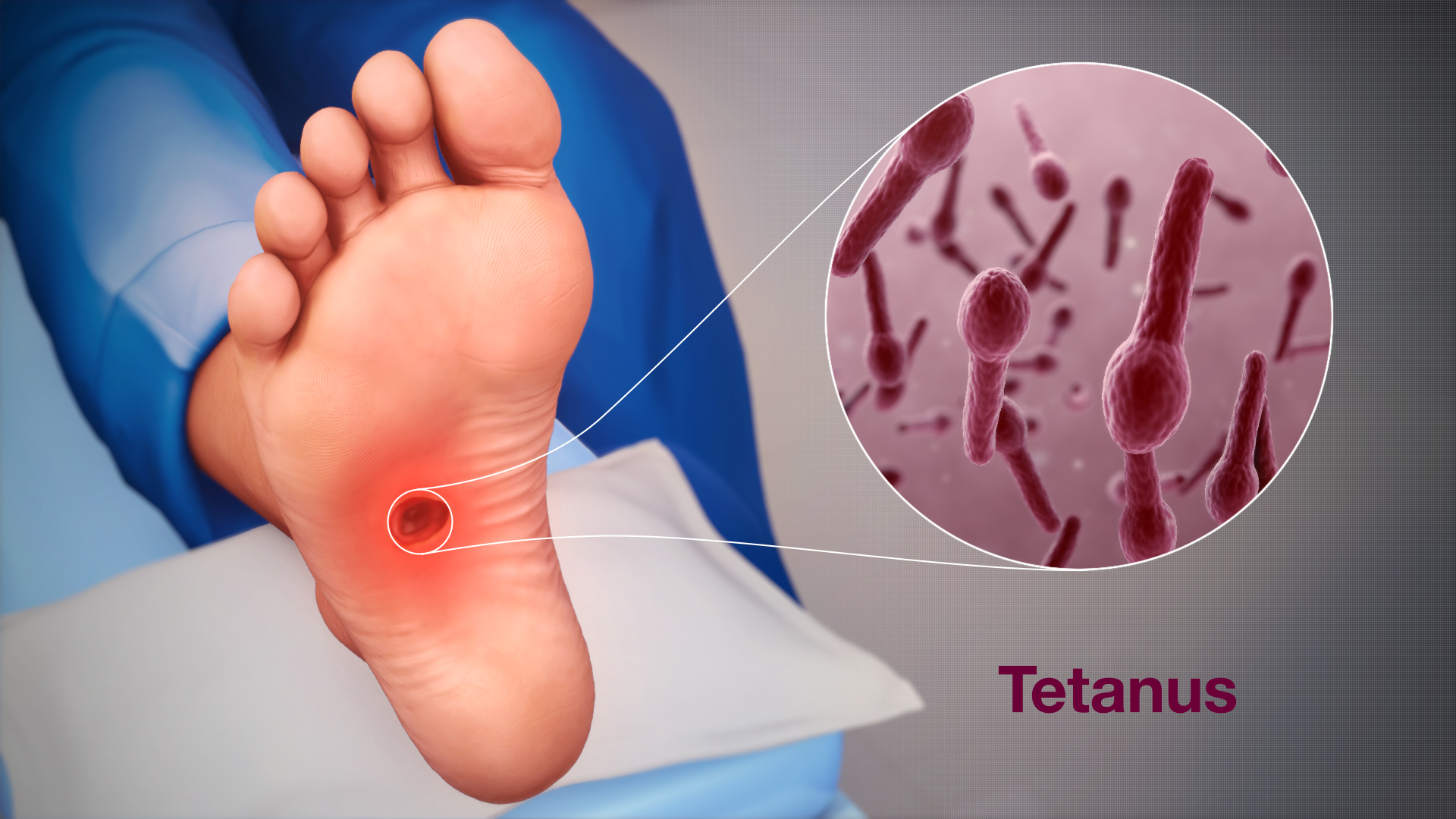Tetanus is a serious bacterial infection that is caused by the bacterium Clostridium tetani. This bacterium produces a toxin that affects the nervous system, leading to stiffness and painful contractions in the muscles, especially in the muscles of the neck and jaw. The infection eventually spreads to the rest of the body, can affect the ability to breathe and is life-threatening. It is also popularly called lockjaw. It is easily preventable through the use of a vaccine. In the US, and other developed countries, where the tetanus vaccine is easily available, tetanus is rare; but in underdeveloped nations, it is more common.

Symptoms
Signs and symptoms of tetanus may start showing up anytime from a week to a few months after the tetanus bacteria have entered the body. But most commonly they appear within 7 to 10 days. The most common signs and symptoms of tetanus are:
- Difficulty in swallowing
- Stiffness in neck muscles
- Stiffness in jaw muscles
- Stiffness of abdominal muscles
- Painful spasms in the body that last for several minutes
- Fever
- Rapid heart rate
- Sweating
- Increase in blood pressure
Causes
Tetanus is caused by the bacterium Clostridium tetani. Spores of this bacteria are found in dust, dirt, and feces of animals. When these spores enter the bloodstream of a person through a wound or a cut, he/she gets infected because these spores grow into bacteria that produce a toxin known as Tetanospasmin. This toxin is like a poison that blocks the nerve signals from the spinal cord to the muscles. This leads to muscle stiffness and spasms. This infection develops mostly from gunshot wounds, puncture wounds, burns, compound fractures, animal bites, dental infections, and drug use through injections.
Treatment
There is no cure for Tetanus and treatment includes medications to reduce the effects of symptoms, wound care, and supportive care. Medications include Antitoxins, Antibiotics, Vaccines, and Sedatives. If the tetanus infection is severe then intensive care at the hospital is required.
It cannot be cured, but fortunately, can be prevented by getting vaccinated and also getting booster shots every ten years. Most people who get this infection are the ones who have not been vaccinated or did not get their booster shots.
Disclaimer: The information in no way constitutes, or should be construed as medical advice. Nor is the above article an endorsement of any research findings discussed in the article an endorsement for any of the source publications.








